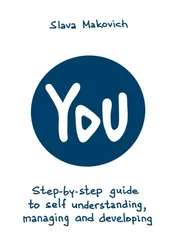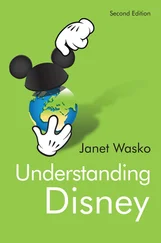By the 1980s when there was much more emphasis on 'individual development' in schools, and much less on 'team spirit', schools were encouraged by the government to improve their resources by 'earning' money. For example, they might need more books or decent furniture or a new building for science, and very often the money allotted to them by the Local Education Authority was not sufficient. But how can a school make money? School governors and staff began to look at their sports fields. In our crowded island so little space is available that every possible site is precious. In order to protect the countryside, planning laws often prevent councils from building in the open 'green' land beyond the edges of towns, so the councils have to look inside the urban area. Attached to the secondary schools were all these sports fields for football, hockey, cricket, which were used during the school day and otherwise left empty. For the public these fields might be pleasant to look at or to walk beside, but they were not 'profitable space'. So local councils and private building firms negotiated with the schools to sell their playing fields for building houses. During these years much green space around the schools was lost for ever. Even when parents and local people fought to save a playing field, the struggle was always expensive and often unsuccessful. On the one hand the schools received money for teachers, books, materials; on the other hand, during the 1990s organised sport became a minority activity, and ceased to be a regular part of the life of every British child.
At the very end of the 1990s the Government decided to change direction and start putting more money into sport. The money came partly from the Government, and partly from the National Lottery. Slowly sport in schools is being regenerated, but, given the crowded school syllabus for most pupils, sports teachers struggle for time against the demands of many other teachers. At the same time, doctors are worried that the younger generation is not getting enough exercise. They point out that far too many school children are overweight, unhealthy and physically unadventurous. So the PE teachers have some allies.
At university, in contrast to Russia, sport is not part of any compulsory curriculum. Playing team games or taking part in gymnastics or rowing or martial arts is entirely a matter of choice. University sports clubs get a grant towards the costs of sport which is then used according to the wishes of the students. The students themselves also contribute towards the costs. Most universities have built up a range of sports facilities which are often open to the local community for a small fee, so the universities get some financial return on their investment.
Outside schools and universities are all kinds of sports clubs and groups, sometimes rather grand clubs with substantial entry fees (such as many golf clubs), sometimes a simple group of parents who meet to teach children how to kick a ball around on Saturday mornings. Team games are often organised through the work place. If you work for a firm and are enthusiastic about football, you will search out another ten enthusiasts and agree to play among yourselves five-a-side football. When you are reasonably confident, you will challenge other teams from other companies and organisations. Usually, new employees find such groups already in existence; but if they want to practice a sport which does not exist in their workplace, they can decide to do the organising by themselves, and perhaps ask their company to help by hiring a football ground or by hiring equipment.
Another way of organising team games is through pubs. Many pubs have skittle alleys or darts teams. If they are pubs with regular local customers (not the kind that tourists visit) they may also be in a football league, playing other pub teams in the district on Sundays. All these games are entirely amateur, played simply for fun, and often played by people who are nearer 40 than 20 or, in the case of golf, tennis, swimming and bowls, often much older than 40.
Competitive sport at national and international level requires a different approach. We have to have special trainers to train the brilliant boys and girls who are capable of winning sports competitions. Many sports commentators believe that sport at professional league level is better than it has ever been before, whether or not England is successful in international tournaments. Since we have limited resources, there is always a tension between training the gifted sportsman and ensuring that as many people as possible play at their own level.
The English pride themselves on having invented most competitive team games including football. In any case, as elsewhere in the world, for much of the year our national obsession seems to be following the fates of our football teams. Even when they are not very successful, they are supported by millions of fans. Football enthusiasts in Russia are able to recite the exploits and players of our best Premier League teams, and everyone seems to have heard of Manchester United. However we should make a distinction between watching/supporting football teams and playing football. Football is regularly played by about 10% of men, though far more people watch the games live or on television than actually go out to kick a ball around. As active sport, what matters are the loyalties to local amateur football leagues and to the children's Saturday sports clubs which come out of a different world from the excitement of fans at the time of the European or World Cup.
Smaller numbers play rugby football, cricket, tennis and field hockey (which is mostly played by women). Something must be said about cricket in a book on English culture. Cricket is 'the English game' in a quite different way from football. Whereas football is international and yet can be played on any patch of grass by small boys, cricket is English (not Scottish or Irish though there are Welsh teams). Cricket needs two special bats, a small hard ball, three stout sticks and a dry and level piece of ground, even for the most informal of games. Cricket was taken by the English to many of the countries that were once part of the British Empire, with the result that today you will find its most fanatical players in India, Pakistan, Australia, the West Indies and South Africa. These countries and one or two others play in an international league together with England; occasionally England wins. But whether or not the English are successful internationally, cricket, which is unknown in most of the world, is a very special English cultural game, so here is a short account of it.
Cricket is a game played between two teams of eleven players. The players in one team 'bat', which is to say that they, in turn, try to hit a ball which is thrown at them so hard that the ball flies through the air and long way off. One player in the other team is the bowler who throws the ball; the other members of his team try to catch the ball when it is hit by the batsman. The batsman scores by running between two special posts (wickets) while the ball he has hit is somewhere else in the field. The batsman loses if the wicket he guards is hit by the ball bowled by the bowler, or if he is still running between the two wickets when the ball is returned from the field to his own wicket. When all the batsman on one side are 'out' (when they have lost), the teams switch activities.
This apparently simple game has exceedingly subtle rules. It is regarded by philosophers and poets as the height of sport-as-art, sport-as-psychology, sport-as-philosophy, sport-as-spiritual-refreshment. It is possible to play the game in a few hours; or in a day; or in two days. The English consider that the highest form of the sport occurs when England and Australia play five-day matches. Very often nobody wins; the game is drawn - usually because of a complicated mixture of psychology and the weather. (The weather is less of problem in India and Australia where sunny dry days are more frequent, a fact which partly explains why Indians and Australians tend to be better than the English at the 'English game'.) A game which goes on for so long, where everything seems to happen so slowly and where a draw is as common as a win-lose, is clearly not a game for everyone. Americans would not be able to stand such a sport although a few of them were enthusiasts 200 years ago. However, the slow pace of the game is misleading; when a bowler throws a ball at a batsman, the ball can reach speeds of 150 kilometres an hour. Even in the eighteenth century the heir to the throne was killed by being hit on the head by a fast-bowled ball.
Читать дальше












